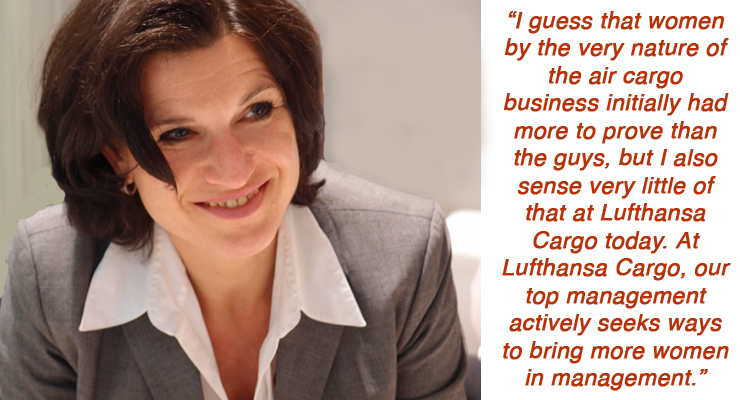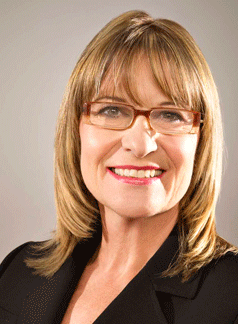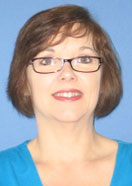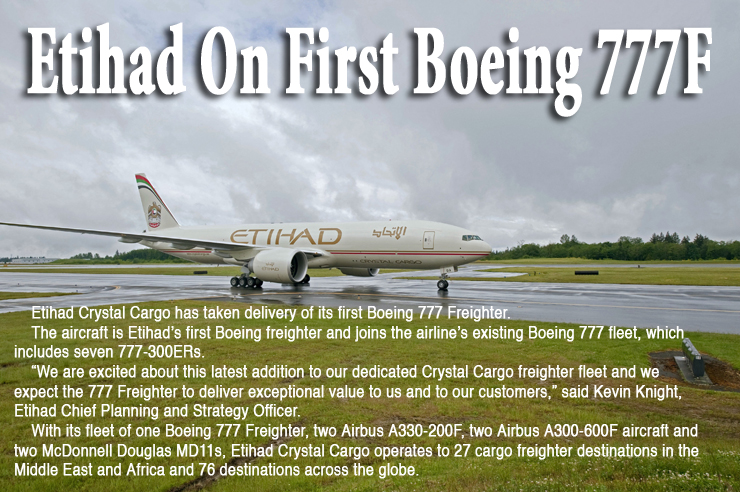| 
Martina Vollbrecht, Director Product Management
Express and Standard at Lufthansa Cargo, is smart, beautiful and right
in the groove as both a highly specialized business professional and a
dedicated wife and mother.
At Lufthansa Cargo, Martina handles product
management for half of the carrier’s varied products including express
product (td.Flash), as well as responsibilities for dangerous goods and
perishables product development which translates into monitoring the financial
and qualitative performance and initiation of corrective actions and evolving
new product features and sharpening the existing ones.
Martina also gets involved in marketing,
so it can be said that her responsibility in a highly specialized world
is inventive and entrepreneurial.
Martina is an absolute original.
Her stock and trade is to have a better
idea, and apparently she delivers, which is a vital achievement in air
cargo.
In fact, in 2012 Martina will celebrate
her 25th year at Lufthansa. She can look back on a career that included
her early posting to marketing and has continued since Lufthansa Cargo
Group was formed in 1995.
But if you ask this fiercely bright lady
what she considers to be her hallmark at Lufthansa, she says right away:
“I am proud to be one of seven female
managers at Lufthansa Cargo and one out of two that have children.”
When asked what drives her life between
home and work (a question, by the way, only asked of women for some reason),
Martina declares:
“My motivation is not so much about
position (after all I am not a man), it is about doing the job and the
right thing for the company.
“I am also developing some good kids,
Leon and Jannick, who are living and performing well and so far not missing
their mother at home too much.”
“The time that I spend with my two
boys, aged almost seven and four and a half, is always quality time—dedicated
to them exclusively.
“My husband, Dominic who is a full
time manager, also shares the parenting, otherwise it would not work.
“Things have changed dramatically
in the workplace for women.
“When I began and was in sales, the
room was usually filled with sincere, well-meaning (albeit) members of
‘the old boys club.’
“I was vaguely aware of the odds,
but later some of my customers said:
“‘When you started we wondered
what was Lufthansa doing sending out such a young girl?’
“‘Afterwards, we realized that
you really know what you are doing and we appreciate that you are our
sales person.’
“I guess that women by the very nature
of the air cargo business initially had more to prove than the guys, but
I also sense very little of that at Lufthansa Cargo today. At Lufthansa
Cargo, our top management actively seeks ways to bring more women in management.
“Although the numbers still very definitely
favor men in positions of power and influence, it is definitely about
how well you do the job—that is the first priority above all.
“So there is much hope and much more
merit-based opportunities for women coming into the air cargo business
these days.
“My view would be to encourage all
young women who would want a career in air cargo to go for it.”
Asked about her legacy to air cargo, Martina
laughed:
“I hope my career is not ending just
yet,” she said:
“In terms of what is ahead, I would
like to forward as much pride of who we are into what we do so that everyone
in and outside of our company understands that Lufthansa Cargo is the
best in the world.
“We have a better idea and work everyday
to advance every aspect of our air cargo enterprise.”
“While we move technology forward
we never forget how important people are.
“Lufthansa Cargo combines advanced
systems and human experience, creating overall efficiencies in the selling,
routing and delivery of air cargo.”
Asked about what she does when not at work
in the big Lufthansa Cargo complex at Frankfurt International Airport,
Martina said:
“I love to read. I am quite old fashioned
in that sense, devouring magazines and newspapers and an occasional book.
“I love my job and overall my experiences
at Lufthansa Cargo, but given the opportunity to begin my career all over
again, would like to have had more of a background in engineering, thinking
the combination of engineering and business studies would have been ideal.”
When you meet a person who has accomplished
all that Martina has and they say their one wish would be to have been
able to offer more, despite the vastness of what they have already offered,
it is easy to see that they are the real deal.
Geoffrey/Flossie
|







